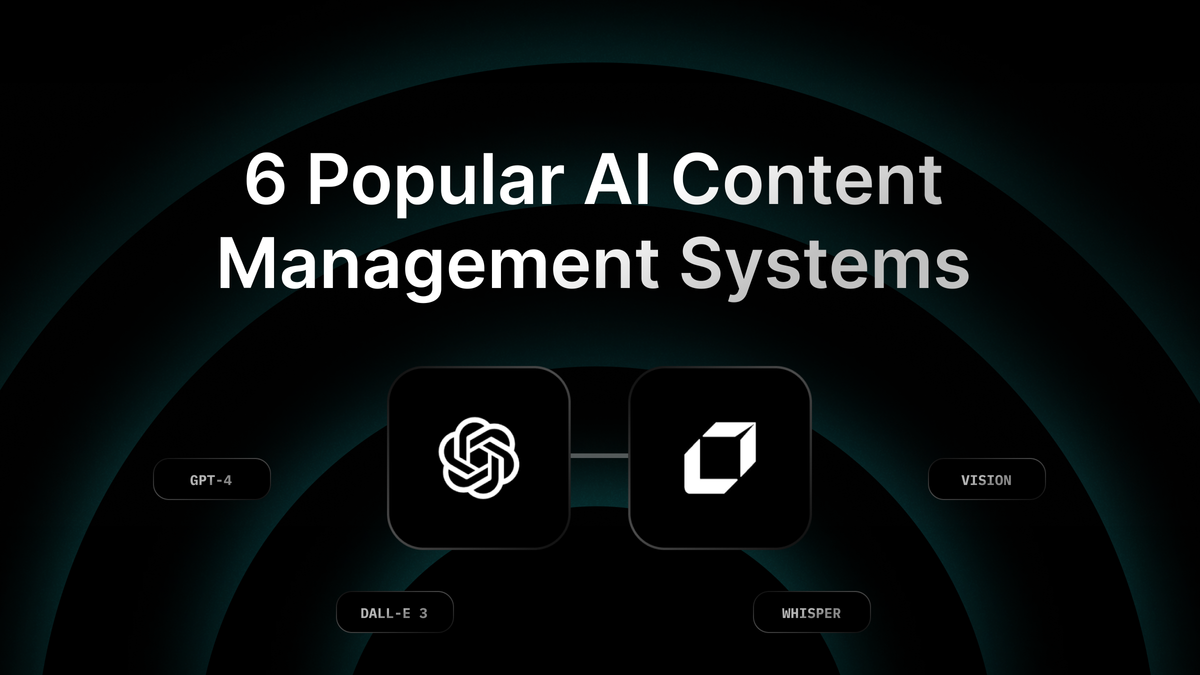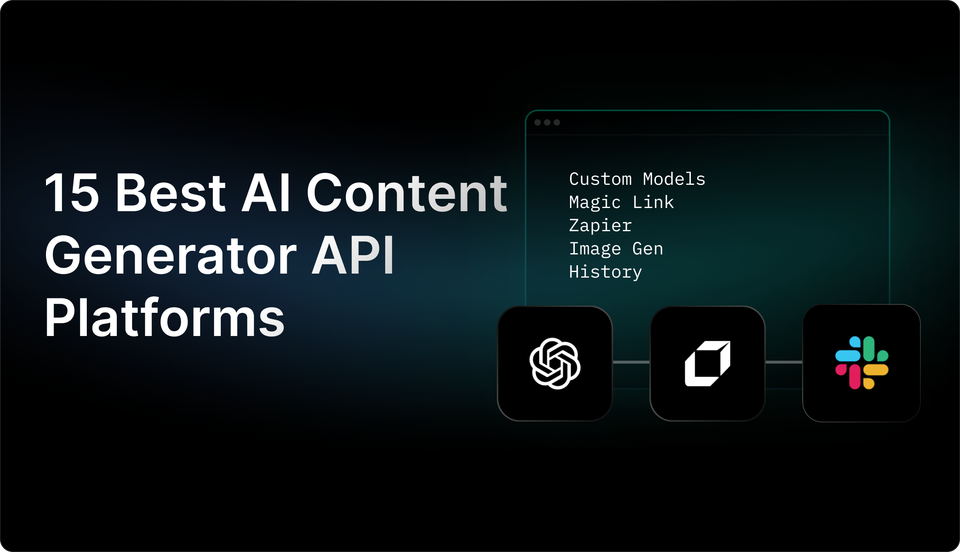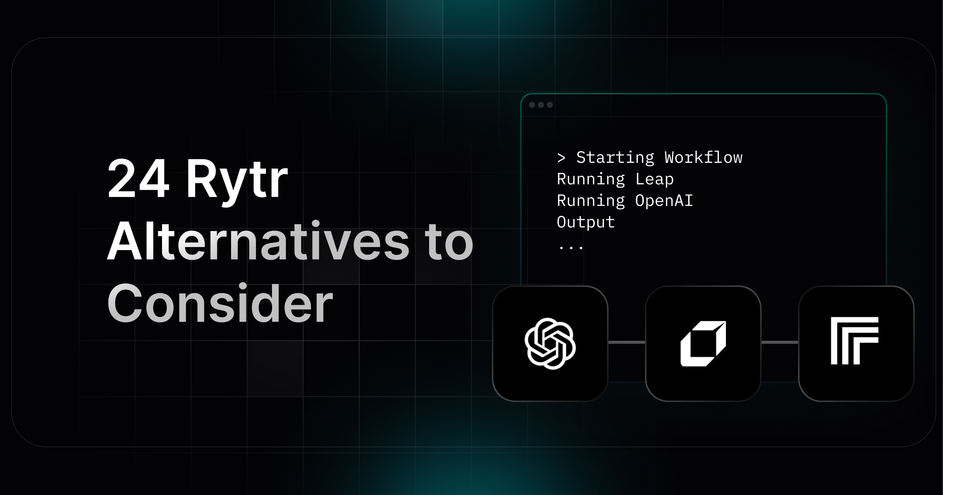6 Most Popular AI Content Management Systems (2024)
Discover the top AI content management systems that are leading the way. Find out how AI technology is revolutionizing content management!

AI Content Management has revolutionized the way we create, organize, and distribute content. By leveraging advanced algorithms and machine learning, AI content management systems can streamline the content ideation process, improve content quality, and enhance overall content performance. Whether you're a content creator, marketer, or business owner, AI content management holds the power to make your content strategy more efficient, effective, and profitable. Let's explore how AI Content Management solutions can transform your content creation process and take your content strategy to new heights.

AI Content Management Overview

Artificial Intelligence (AI) in content creation apps is a game-changer in the digital landscape. AI-enhanced content management platforms leverage key AI capabilities such as machine learning, natural language processing, and natural language generation to optimize content creation, curation, and delivery.
Machine Learning algorithms, such as adaptive content delivery, automated categorization, and anomaly detection, help streamline content sorting, delivery, and quality control. Natural Language Processing (NLP) enhances content management platforms by enabling semantic analysis, sentiment analysis, and language translation, making content more accessible and relevant to a diverse audience.
Why Combine AI with Content Management?
Combining AI with content management unlocks a world of possibilities. Predictive analytics enable content recommendations, trend forecasting, and user journey optimization. Content recommendations leverage past user behaviors to predict future content preferences.
Trend forecasting aids content creators in keeping up with emerging trends, ensuring their content remains relevant and engaging. User journey optimization uses predictive analytics to anticipate user paths, allowing content management systems to deliver a seamless and customized user experience.

5 Ways AI Has Changed Content Management

1. Website Design with AI
AI algorithms like The Grid and Wix simplify website creation by asking a few business-related questions to create a ready-to-launch website.
2. Enhanced Searching with AI
Google's RankBrain assesses search semantics and adapts to provide the best answers, influencing all online content creation for better SERP ranking.
3. AI in Choice Prediction
Brands like EasyJet, North Face, and 1-800-Flowers predict customer choices and offer precise recommendations based on AI algorithms.
4. Automated Social Media Posts
Marketers can schedule automated tweets on Twitter based on user emotions and moods, improving content management efficiency.
5. Flexible Conversions with AI
Airbnb uses AI to adjust prices daily for hosts, ensuring competitive prices to attract customers and optimize conversions.
4 Innovative AI Content Management Use Cases

1. Content curation and tagging
AI algorithms can analyze and categorize content based on its topic, sentiment, and relevance, simplifying content curation. This helps in automating tasks like image tagging, metadata creation, and content categorization, enabling a more efficient workflow.
2. Translation and localization
Sophisticated AI translation tools translate content quickly and accurately, ensuring a message resonates globally. This is crucial for reaching a wider audience, making content more accessible across different regions.
3. Improving SEO and content performance
AI tools analyze keywords, trends, and user intent to optimize content for search engines effectively. This is vital for enhancing visibility and reach in the digital landscape. By generating keyword suggestions and optimizing metadata, AI assists in improving content discoverability and ranking on search engine results pages (SERPs).
4. Content distribution and publishing
AI algorithms determine the optimal timing and frequency for content distribution based on audience behavior and platform analytics. This ensures content reaches the right audience at the right time, maximizing its impact and reach.
How Leap Can Enhance Your AI Workflows
Leap helps you automate work using AI. Partnered with Zapier, Vercel, and more, Leap enables creating custom AI automations with no code. Connect the tools you love with best-in-class AI models for text, image, and audio, enhancing your existing tools with seamless AI integrations. Supercharge work processes with Leap Workflows, automating various tasks such as summarizing documents or SEO automation. The possibilities for automation are unlimited with Leap Workflows.
Try Leap’s AI Workflows tool for free today.
Related Reading
- Content At Scale Ai Detector
- Content Marketing Roi
- Social Media Automation
- Ai Content Creation
6 Most Popular AI Content Management Systems

1. Leap AI: Automating Your Workflow with the Power of AI
Leap AI is an innovative content management system using AI technology to automate various tasks, allowing content marketing teams to operate more efficiently. With partnerships with top tech companies like Zapier and Vercel, Leap AI offers custom AI automations that integrate seamlessly with popular tools.
From summarizing documents to voice translation, AI avatar and asset generation, Leap Workflows can automate a wide range of processes. Its ability to connect with OpenAI and Microsoft enhances its capabilities, making it a powerful tool for content marketing teams looking to streamline their workflows.
2. Contentstack: Leveraging AI for Streamlined Content Operations
Contentstack is a headless content management system that leverages artificial intelligence to streamline content operations. With its AI-powered features like smart content analysis, automatic image tagging, scalable personalization, and content creation assistance, Contentstack is an excellent choice for businesses looking to enhance their content management processes. Its ability to analyze and categorize content makes it easier for users to access relevant information, boosting productivity and efficiency within content marketing teams.
3. CMS Hub: Integrated AI for Optimized Content Management
CMS Hub, developed by HubSpot, offers an integrated CMS with cutting-edge AI capabilities to help businesses create, manage, and optimize their content seamlessly. Features like real-time analytics, AI-powered content creation, and personalization tools empower users to deliver tailored experiences to their audience.
The AI integrations within CMS Hub also assist in optimizing content for search engines, enhancing online visibility and driving more traffic to businesses' websites. This all-in-one solution is ideal for content marketing teams seeking efficient content management with AI-driven capabilities.
4. Squarespace: AI-Powered Content Management for Visual Appeal
Squarespace, a popular website builder and CMS, incorporates AI features to enhance its content management capabilities. With AI-powered image recognition, content categorization, and personalized recommendations, Squarespace empowers users to create visually appealing and engaging content effortlessly.
Its AI-driven search and discovery features provide users with a streamlined experience, allowing them to find relevant content quickly and improve their website's overall user experience. This AI integration can significantly benefit content marketing teams aiming to enhance their visual content and user engagement.
5. Wix: AI Integration for Efficient Content Creation
Wix, another well-known website builder and CMS, integrates AI features into its platform to improve content creation and management. With AI-driven content creation, personalization, and search capabilities, Wix enables businesses to create and manage content efficiently.
Its AI-powered analytics and optimization tools further help users enhance their website's performance, ensuring they can achieve better results from their online presence. Content marketing teams looking for a user-friendly content management system with AI capabilities can benefit from Wix's intuitive interface and powerful features.
6. WordPress: Enhancing Content Management with AI Plugins
WordPress, a widely used CMS platform, can be enhanced with AI integrations to improve content management processes. By incorporating AI plugins and tools, users can take advantage of features like automated content generation, intelligent content categorization, and real-time analytics.
These AI-powered capabilities empower businesses to optimize their content strategies and deliver a more engaging user experience to their audience. Content marketing teams familiar with WordPress can easily leverage these AI integrations to boost their content management efficiency and effectiveness.
Related Reading
- Content Scaling
- Content Automation
- Content Workflow
- Content Marketing Automation
- How To Make Ai Content Undetectable
- How To Train Chatgpt To Write Like You
- Content Marketing Workflow
- Best Instagram Automation
- Ai Powered Content Creation
- Ai Content Optimization
- Content Planning For Social Media
- Ai And Content Marketing
- Content Production Process
- How To Automate Content Creation
- Automate Blog Posts
- Cost Effective Content Marketing
How to Build Efficient Content Management Workflows With AI

Identify where AI is needed
First, conduct a content audit. Analyze your existing content creation process, including content types, production time, and team roles. Identify bottlenecks, repetitive tasks, and areas where automation could be beneficial. Get your team involved and discuss their pain points and challenges in the content creation process. What tasks are tedious or time-consuming? What information do they need readily available to be more efficient?
Choose the right tools
There’s a vast array of AI content management tools available, each with its strengths and weaknesses. Look for features like topic ideation, content creation, and content analytics. Before committing, take advantage of free trials and demos to test the tool’s functionality and user interface.
Integrate AI
Consider a phased approach to AI integration. Start by automating one or two specific tasks within your workflow. This allows your team to become comfortable with the new technology. Provide proper training and support to your team on the new AI tools and make sure they understand how to use the app within the workflow.
Maintain human oversight
AI is a powerful assistant, not a replacement for human creativity and judgment. Establish a clear review and approval process for AI-written content and reserve human resources to develop your content strategy, define brand voice, and make high-level decisions. While it’s important to maintain human oversight every step of the way, it’s also not a good idea to micromanage AI.
Measure and refine
Monitor the impact of AI on your content creation process. Track metrics such as content production time, content quality, and audience engagement. Use this data to refine your workflow and don’t be afraid to experiment with different AI tools and functionalities.
Measuring AI Content Management System Performance

User Engagement Metrics
To measure the effectiveness of an AI-driven content management system, one should focus on user engagement metrics such as bounce rate, page views per visit, and returning vs. new users. A low bounce rate indicates that visitors find the content relevant and are exploring more of the platform.
An increased page views per visit suggest that users are engaging with more content, reflecting their interest in the platform. A growing number of returning users can indicate that the AI-driven personalization is successfully retaining audience interest.
Click-Through Rates (CTR)
Click-through rates (CTR) are crucial KPIs to monitor the performance of an AI content management system. It is beneficial to track both content and ad CTRs. Content CTR measures the percentage of users who click on recommended content, with a higher CTR indicating the effectiveness of AI recommendations. For monetized platforms, monitoring ad CTR provides insights into how well the AI targets advertisements.
Time Spent on the Platform
Measuring time spent on the platform through metrics such as average session duration and time on page is essential to understand user engagement levels. A longer session duration suggests users find the content engaging and relevant, while monitoring the time spent on individual pieces of content helps identify topics or formats that resonate most with users.
A/B Testing for Personalization
A/B testing is a valuable tool to test different AI-driven personalization strategies. By comparing different variants, such as content recommendations based on user behavior versus collaborative filtering, organizations can determine which approach yields the best results. A/B testing can also help optimize conversion rates by identifying personalized prompts or calls to action that increase conversions.
Feedback and Sentiment Analysis
Collecting user feedback through surveys and conducting sentiment analysis on comments, reviews, and feedback helps gauge user sentiment towards the platform and its content. Periodically gathering user feedback helps organizations understand user experiences with the CMS and the relevance of AI-driven content. Employing AI for sentiment analysis can provide deeper insights into user sentiments.
System Performance Metrics
Monitoring system performance metrics like query response time and error rate is critical for evaluating the effectiveness of an AI content management system. Query response time measures how quickly the system retrieves and displays content, directly impacting user experience. An elevated error rate, indicating a high frequency of incorrect content recommendations or mis-categorizations, highlights areas that require AI refinement.
ROI and Business Impact Metrics
Calculating the ROI and monitoring business impact metrics such as cost savings and revenue growth is essential for assessing the benefits of an AI content management system. Determining operational costs saved through AI-driven automation and monitoring revenue growth directly attributable to improved user experience and engagement due to AI integration provides a holistic view of the impact of AI on content management.
What's the Future of AI Content Management?

Real-time SEO Suggestions
Imagine the power of having an AI-powered content management system that analyzes your content as you write it and provides real-time suggestions to improve your SEO. With this tool, you can receive recommendations on words and phrases to use while writing, as well as insights on how to optimize your content to outrank competitors. Soon, having AI assistance to create high-ranking, competitive content could become a reality.
Content Gap Identification
No matter how vast the internet seems, there are always content gaps waiting to be filled. Whether it's the comment section of a blog or questions left unanswered, there are always opportunities for new content. Future AI content management solutions could analyze existing content to identify these gaps and propose new ideas to engage your target audience and boost traffic.
Advanced Analytics
The future of AI in content management will bring advanced analytics capabilities that can map out the entire customer journey. With the ability to gather rich data on customer behavior, businesses can gain a deep understanding of their customers' needs and preferences. This, in turn, will lead to personalized content that effectively increases the conversion rate of customers.
Custom AI
Every business has unique needs when it comes to content management systems. It makes sense then, that they would require a CMS that is tailored to their specific requirements. Custom AI tools, which can be trained to meet individual business needs, are a promising development that will enable businesses to customize their CMS to align with their goals and objectives.
Related Reading
- Midjourney Alternatives
- Ai Content Creation Tools
- Best Linkedin Automation Tools
- Social Media Automation Tools
- Content Automation Tools
- Writesonic Alternative
- Copy Ai Alternatives
- Jasper Ai Alternative
- Rytr Alternatives
- Wordtune Alternatives
- Ai Content Generator Api
- Content Automation Services
- Frase Alternative
Create Game Changing Automations Today With Leap’s AI Workflows
With Leap, you can automate your tasks and processes using cutting-edge AI technology, supercharging your efficiency and productivity. By partnering with leading companies like Zapier and Vercel, Leap provides a seamless experience that allows you to create custom AI automations without the need for coding skills. This means that you can easily connect your favorite tools with top-notch AI text, image, and audio models, enabling you to achieve amazing results with minimal effort.
With Leap, you can access sophisticated AI capabilities from providers like OpenAI and Microsoft, allowing you to transform your existing tools into AI powerhouses. Whether you need to summarize documents, translate text, transcribe calls, generate avatars, automate SEO tasks, or streamline cold email campaigns, Leap's AI Workflows tool has got you covered. The possibilities of automation are truly limitless when you use Leap, so why not try it for free today and experience the future of work?




